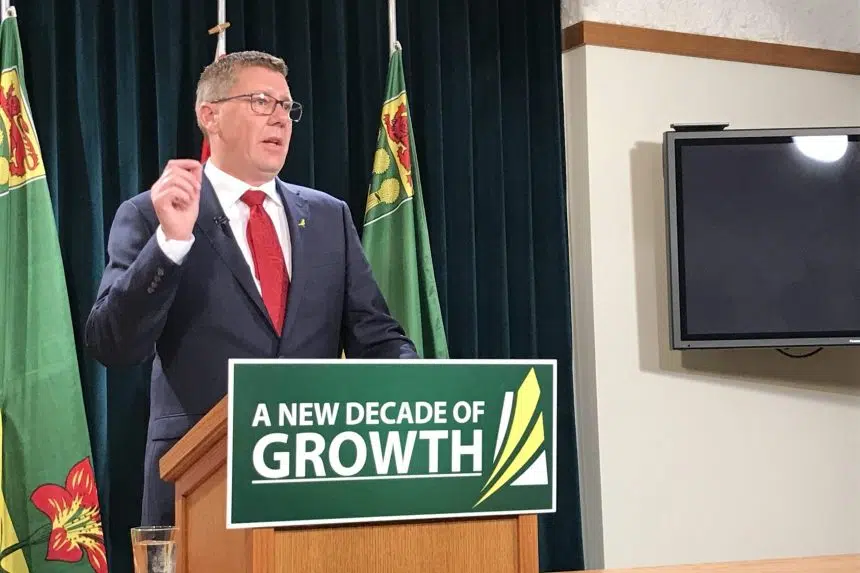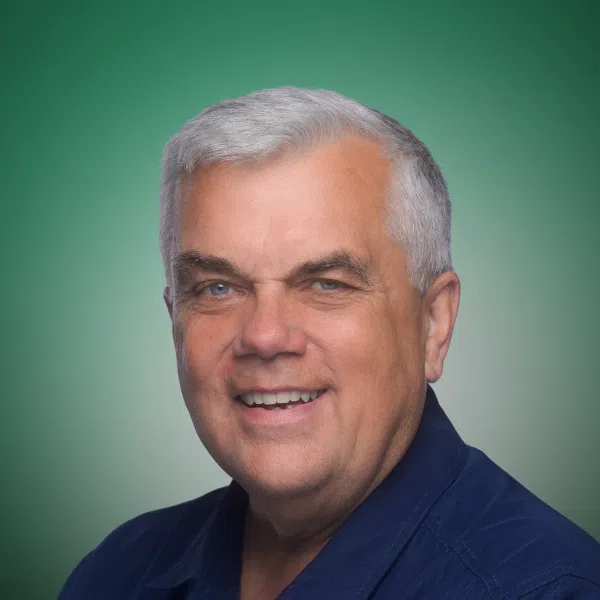Premier Scott Moe’s government is looking for significant growth in Saskatchewan over the next decade.
That was the theme of the 2019 speech from the throne, which was delivered Wednesday in the Saskatchewan legislature.
The document, entitled “A New Decade of Growth,” was read by Lt.-Gov. Russ Mirasty. It was the first time Mirasty delivered the speech since becoming lieutenant-governor July 17.
“We want to ensure that Saskatchewan continues to move forward so that we can offer that hope and opportunity to our young people, that next generation, and a good quality of life for Saskatchewan families from corner to corner of this province,” Moe said before the speech was read.
Moe has set targets for that growth — and he said there’s “no question” the targets are aggressive.
The government wants to see Saskatchewan’s population reach 1.4 million by 2030; there currently are around 1.17 million residents in the province.
Over the same time frame, the Sask. Party also wants 100,000 more jobs to be created in the province. As of June, there were nearly 593,000 people working in Saskatchewan.
Moe said this throne speech is the first step for laying out the decade of growth to come.
“The recipe for success in this province is quite simple: We increase the value of our exports (and) increase the opportunity for careers in our communities across this province,” he told the media before the speech was read.
“As those career opportunities increase, people do move here from other areas, and they move here with their families, and that has been evident over the course of the last decade.”
The premier explained that the government will be accelerating its efforts, and there will be steps in immigration plans in subsequent budgets and initiatives.
“We’re confident that this will be our north star when it comes to population growth, and we’re going to now, over the course of the next 10 years, make decisions at budget time, make decisions with respect to platforms that will come out during election times, make decisions with respect to the legislation when it comes into the house, that will focus in and create the opportunity for us to actually achieve this target,” Moe said.
Another area in which the government wants to see growth is in the agricultural sector. By 2030, Moe hopes to expand agricultural exports from the province to $10 billion.
Energy, oil and gas in Saskatchewan
With the government’s Supreme Court challenge of the federal carbon tax to continue, the province plans to assist the energy sector in Saskatchewan.
The Moe government is to create a fund of up to $10 million to help Estevan, Coronach and other communities in southeastern Saskatchewan. The funds are to help create new economic development opportunities to help workers who will be affected by the federal phase-out of coal-fired electricity by 2030.
According to Moe, the provincial government has been working — and will continue to work — closely with the communities to come up with what they feel is important to invest in.
“We want to ensure that the opportunities for careers are as strong as they’ve ever been in these communities that are impacted by the phase-out of coal,” said Moe.
The money will be distributed over a number of years and Moe said initiatives will be announced as they come to fruition.
Legislation in the works
In the speech, Moe revealed his government plans to introduce about 30 pieces of legislation during the fall session.
One of those will call for the regulation of vaping and vaping products, something that Health Minister Jim Reiter hinted at in August. The ministry started requiring health professionals in the province to report vaping-related illnesses in September.
Moe said regulations around alcohol and tobacco will set the framework for the discussion, though they may not look the same in the end.
Moe also said his government will introduce tougher penalties for distracted driving.
With Tyvan’s Sandra LaRose in the audience — LaRose’s daughter was killed in a car-train collision while she was on her cellphone — Moe vowed to increase the punishment for those who endanger others while driving distracted.
“We are going to have strong initiatives in place,” he said. “You can look for something similar to what we’ve done in the case of impaired driving. The consequences, quite often, are similar.”
The government also plans to implement Clare’s Law, which was passed in the spring session. The law allows police to pass on information to people who may be at risk of interpersonal violence.
Saskatchewan is the first province in the country to pass the law.
Other priorities
The speech also said the province will introduce a plan to reduce surgical wait times, although it didn’t provide any details as to how that will happen.
The government addressed other areas such as public safety, transportation, parks and culture, social services and education in the speech.
While there was discussion about students’ needs, there wasn’t any mention of the province’s teachers.
The Saskatchewan Teachers Federation and the province are at loggerheads regarding a new collective bargaining agreement. Along with wage issues, class size and composition are at the heart of the dispute.
The NDP response
The Saskatchewan New Democrats were focusing on topics they felt were ignored in the throne speech: Classrooms and health care wait times.
“The speech boasts about spending since 2007 but ignores the fact that things have been getting much worse in hospitals and our classrooms in the last five years,” said NDP Leader Ryan Meili.
Meili said those are going to be two of his party’s top priorities in the coming legislative session.
As for the growth plan laid out in the speech, Meili seemed skeptical, saying he’ll be interested to see what it actually looks like and whether there’s enough diversity there.
“Our economic growth has depended, during this last boom, largely on expansion in potash and uranium, and oil and gas,” Meili said. “We’d love to see those things happen again, but you can’t count on those once-in-a-lifetime conditions to occur.”
Meili said investing in people is something that was missing from the speech and he feels that Moe doesn’t understand that part of growth.
The NDP vision for the next 10 years in Saskatchewan involves economic growth, but in a way that improves the quality of life for everyone in Saskatchewan.
When it comes to the money for communities in the southeast, Meili said he’s glad to see the province is responding to that need but hopes there will be a focus on the workers as well as economic development.
“Where are the folks who are looking at losing their jobs and what are their opportunities for training? How are we going to make sure that they’re finding ways, hopefully, to stay locally employed but also to seek other opportunities?” said Meili.
As for other promises in the speech, Meili called the legislative agenda for the coming session unambitious and “thin soup.”
He said he’s happy to see that vaping regulations are in the future for the province, but also said his party will be watching to see that they’re robust enough.











